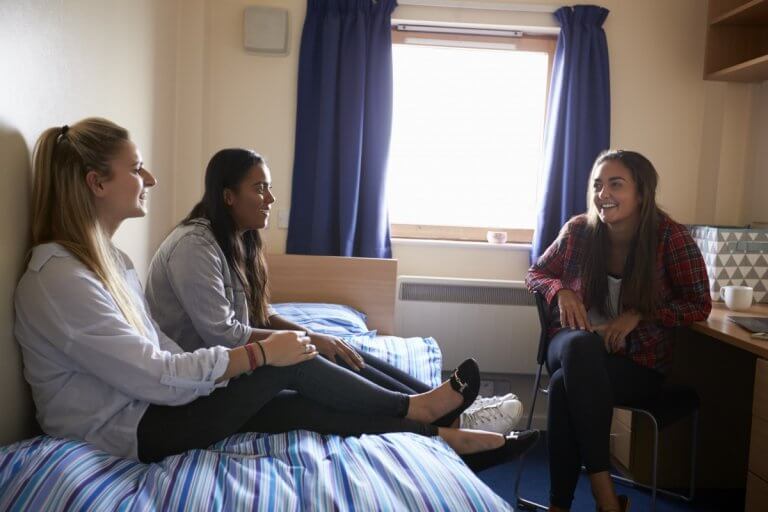
Moving to a new country to study can be lonely, at least for the first few months. Unless you’re living in a homestay, it’s likely that you’ll have to figure out your new city, college and how everything else works in this foreign land.
Unsurprisingly, newly-released data by Housing Hand found an increase in the number of guarantor applications for Houses of Multiple Occupancy (HMOs), which have between 3-5 bedrooms, a shared kitchen and bathroom facilities.
International students typically need a guarantor, as being without roots in the UK, they are considered a risk for landlords to take on as tenants.
The reasons behind HMO popularity is said to be the opportunity it provides international students for making friends quickly and feeling less alone, the guarantor service company said.
Housing Hand Managing Director, Jeremy Robinson said: “Many international students opt to live initially in shared accommodation, so they have time to make some friends and then move to a flat to share, in their subsequent years at university.
“It can be very daunting starting student life in a new country and we have helped thousands find their first property with our UK guarantor service,” he explained.
Guarantor service provider Housing Hand has noticed an increase in guarantor applications for Houses in Multiple Occupation: #HMOs #students #internationalstudents
— Landlord News (@NewsLandlords) August 1, 2018
International students have to find a guarantor for their tenancy or alternatively, pay the rent upfront. Using Housing Hand, students pay a one-off fee for the guarantor service, typically between 60-95 percent of their share of the monthly rent, subject to a minimum of £295.
The first few days of university, or Fresher’s week as it’s called in the UK, can be a pretty stressful time as students settle in to living independently,, away from friends and family for the first time in their lives.
Having many flat mates around can fill this hole for a bit, but new research also found that this process of making friends with flat mates is a big concern among new students.
Rachel Brown, Research Associate, DECIPHer, Cardiff University wrote in The Conversation: “At most UK campuses and on most courses, the “traditional” structure of freshers’ week continues: you arrive, move into halls, attend induction events and are left with a significant amount of free time to fill.
“The stereotypical freshers’ week is an extended period of drunkenness, where alcohol is heavily promoted and readily available, both on campus and in local venues, which will be doing everything they can to attract new arrivals through their doors.”
Having a pint or two can be good for bonding with your new mates, but remember – moderation is key. And if better physical and mental health, improved self-esteem, a more productive life and even a better social life sounds like the thing for you, try seeking out social activities that do no involve drinking (they exist!).
Liked this? Then you’ll love these…
The pros and cons of ‘homestay’ student accommodation
Would you stay in someone else’s home during your study abroad?







